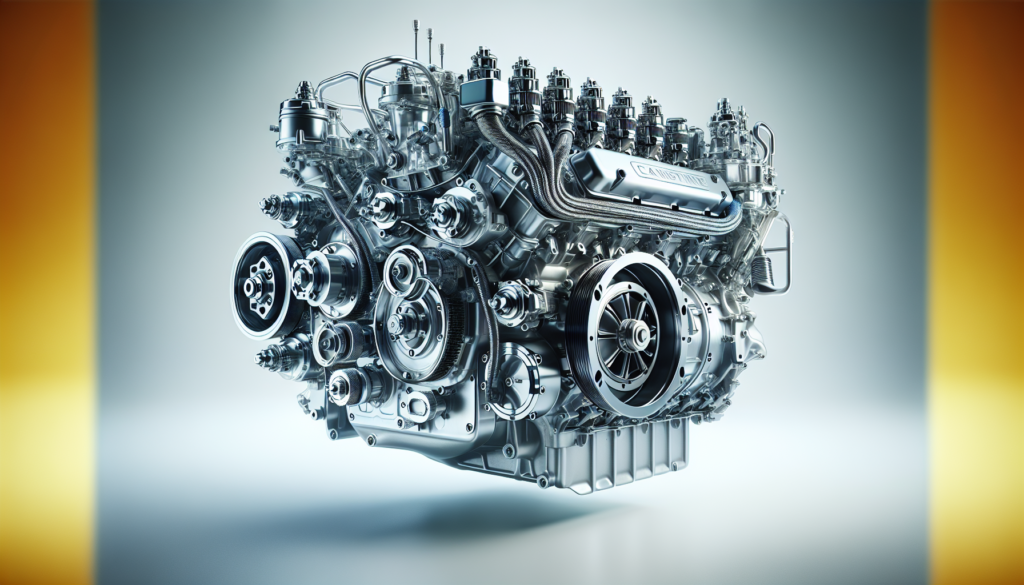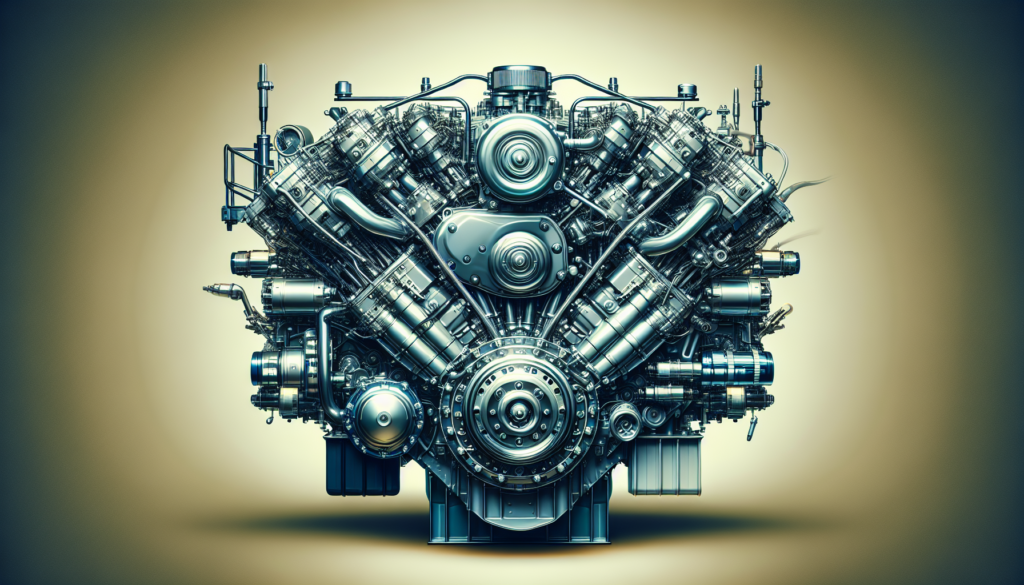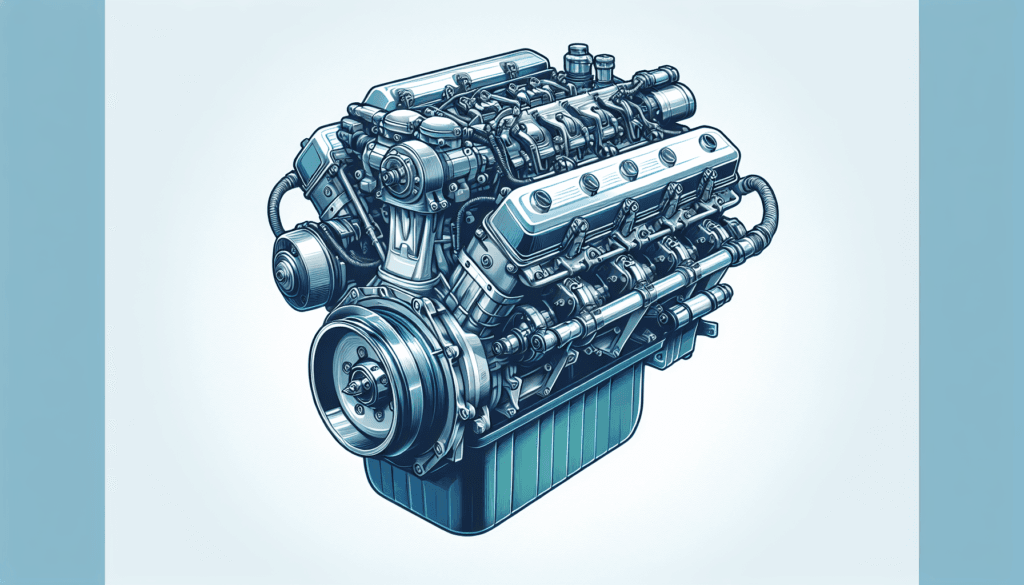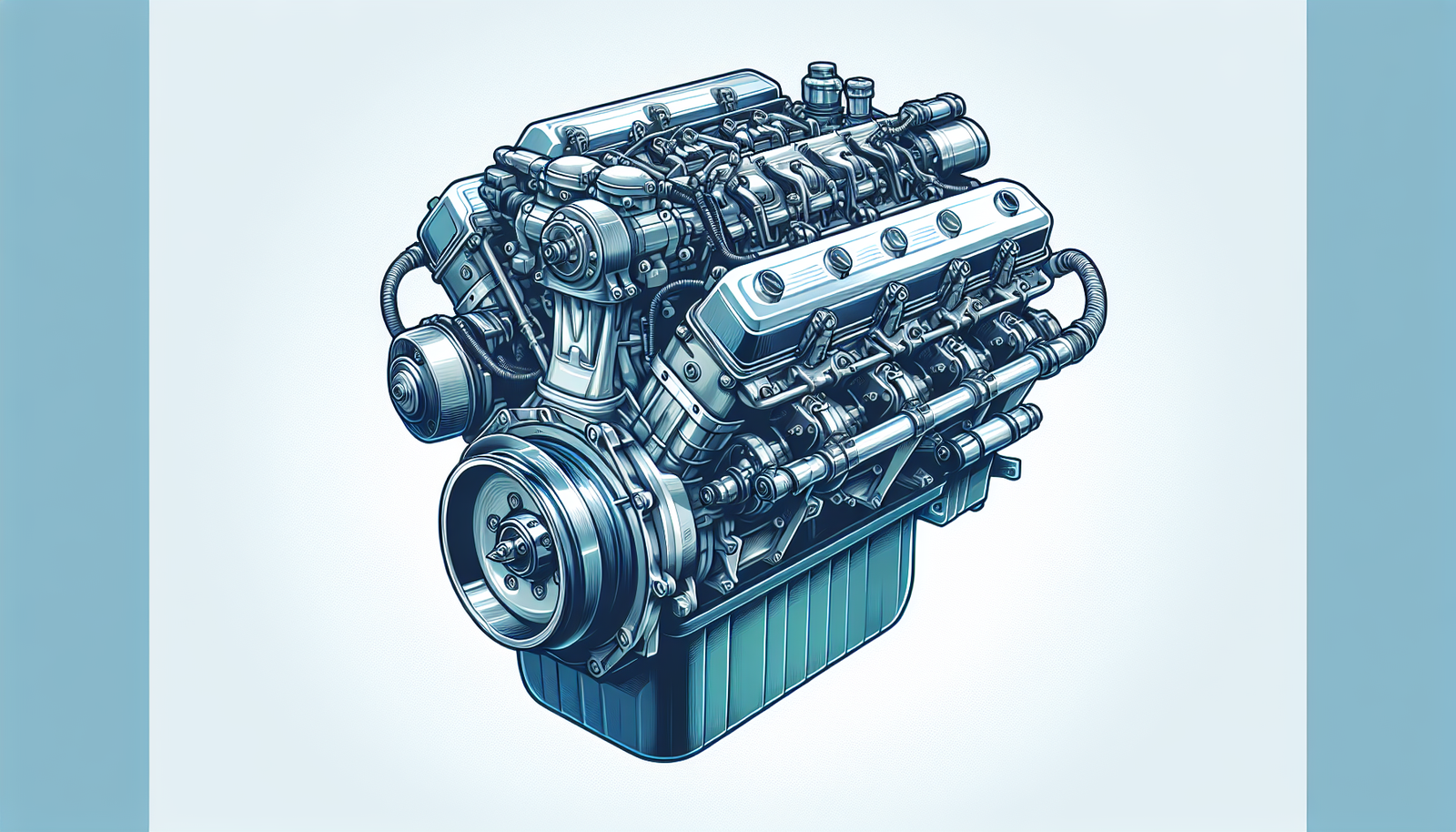You care about your boat and, like any smart investor, you also care about its resale value. Investing time and money into its engine can significantly boost what you’ll pocket when the time comes to sell. This comprehensive guide, Top Ways to Improve the Resale Value of Your Boat Engine, presents you with a wealth of knowledge on extending your boat engine’s lifespan, maintaining its performance, and enhancing its overall value. With this curated information, you’ll surely be sailing towards a more favorable resale deal!
Maintaining Cleanliness and Appearance
Maintaining the cleanliness and appearance of your boat engine plays a crucial role in not only its performance but also its resale value. You might be astonished how much difference a clean, well-maintained boat engine can make, both in terms of operational quality and aesthetic appeal.
Regular cleaning of the engine
Just like any other machine, boat engines also require regular cleaning. This ensures the removal of any harmful deposits or dirt that may affect its performance. You should make it a habit to clean the engine after every outing, so it remains in excellent condition. It not only enhances the engine’s life but also adds to its look, a key factor influencing resale value.
Appropriate use of cleaning agents
It’s essential to use appropriate cleaning agents when cleaning your boat engine. Different engines may require different cleaners, so make sure to select one that’s suitable for your specific engine type. Avoid harsh cleaning agents as they can cause damage. Remember, the goal here isn’t just to clean, but also to preserve and protect your engine.
Preserving engine’s visual appeal
A visually appealing engine can significantly boost your boat’s resale value. Regular cleaning, timely repairs, and repainting if necessary can help maintain or even enhance its visual appeal. A well-kept engine suggests to potential buyers that the boat has been taken care of, making it a more attractive purchase.
Performing Regular Servicing
Performing Regular servicing on your boat engine isn’t just about the short-term benefits; it also plays a huge role in upholding your engine’s value in the long run.
Importance of scheduled servicing
Regular servicing ensures that your boat engine operates efficiently and has a longer life. It helps detect and rectify minor issues before they escalate into significant problems that could reduce the engine’s value. Therefore, sticking to a servicing schedule can be seen as a method of investment protection.
Identifying reputable servicing companies or professionals
There’s no point in regular servicing if it isn’t completed by a qualified professional. Always turn to reputable servicing companies that employ experienced mechanics who understand the intricacies of your specific engine type. Quality maintenance enhances the engine’s performance and, inevitably, its resale value.
Documenting servicing records
Keeping a record of all your engine’s servicing sessions serves as documented evidence of the care and attention you’ve afforded your engine over its lifespan. This not only appeals to potential buyers but can also provide invaluable information to the mechanic who will handle the engine maintenance in the future.

Updating Engine Components
Over time, some parts of your engine may wear out and require replacement. Addressing these issues promptly is key to maintaining your engine’s performance and increasing its resale value.
Identifying parts that need replacement
Being able to recognize when parts of your engine need replacement can save you a lot of trouble down the line. Regular servicing and inspections will help you identify these parts. Don’t ignore the signs; prompt replacement avoids further damage to your engine.
Choosing quality components
When replacing engine components, always opt for high-quality parts. They might be a bit more expensive, but they’re more durable and will deliver better performance. Quality parts could also potentially enhance the overall value of your engine, making it a worthwhile investment.
Recording component replacements
Just like documenting servicing records, keeping track of replaced components is crucial. This information can provide valuable insights into the state of the boat engine to potential buyers, thereby increasing the chances of sealing a good deal.
Promoting Fuel Efficiency
Fuel-efficiency isn’t just about saving money—it also contributes significantly to the resale value of your boat engine.
Rationalizing fuel use
Being mindful of your fuel use can significantly improve your engine’s efficiency and lifespan. Avoid running the engine at high speeds for prolonged periods, and consider investing in a fuel-efficiency gauge to monitor your usage.
Optimizing engine for fuel conservation
Regular servicing goes a long way in optimizing your engine for fuel conservation. This way, your engine burns fuel more efficiently, leading to fewer emissions and less wear and tear.
Benefits of fuel efficient engines
A fuel-efficient engine is a huge selling point when it comes to resale. A boat that consumes less fuel is not only more economical for the buyer to run but is also often seen as a well-maintained and reliable piece of machinery.

Ensuring Proper Storage
How you store your boat engine, particularly when not in use, can have a profound impact on its condition and thus its resale value.
Choosing ideal engine storage methods
When storing your boat engine, select a method suited for its type and size. For instance, smaller engines can be stored in a clean, dry place away from the elements, while larger engines may require professional storage solutions.
How weather impacts boat engine storage
Different weather conditions can significantly affect your boat engine’s lifespan. High humidity can lead to corrosion, while cold can cause parts to contract and crack. Therefore, you must consider the impact of weather when determining your engine storage solution.
Long-term storage precautions
If you plan on storing your boat engine for a prolonged period, make sure to take the necessary long-term storage precautions. This might involve draining all fluids, covering the engine to prevent dust buildup, and periodically starting it to prevent parts from seizing.
Investing in Regular Inspections
Regular inspections are key to maintaining and enhancing the value of your boat engine.
Benefits of frequent engine inspections
Frequent inspections allow you to identify any potential issues before they advance into major problems. This not only saves you money on expensive repairs but also maintains your engine’s performance and durability, thereby boosting its resale value.
What inspectors look for
During an inspection, professionals look for signs of wear and tear, potential leaks, corrosion, and any issues that might affect the engine’s overall performance. By addressing these issues promptly, your engine can continue to operate at its peak.
How inspections increase resale value
Regular inspections show potential buyers that you have been taking good care of your engine. It also reassures them that the engine is in top-notch condition, significantly increasing the resale value.

Optimizing Engine Performance
While maintaining the health of your engine is important, optimizing its performance can give a serious boost to its resale value.
Enhancing speed and power
Performance upgrades can help enhance the speed and power of your boat engine, making it more appealing to potential buyers. However, these upgrades should be done professionally to avoid causing unnecessary damage to the engine.
Balancing performance and lifespan
While upgrading your engine for performance, it’s crucial to strike a balance between enhancing its power and preserving its lifespan. Unnecessary strain on the engine can lead to premature wear and tear, which can negatively impact its value.
Significance of superior performance in resale value
A well-performing engine suggests to potential buyers that the boat engine requires less maintenance and is a worthy investment, thus making it a significant factor in determining the engine’s resale value.
Preventing Engine Problems
Prevention is indeed better than cure, particularly when it comes to your boat engine’s health and its resale value.
Identifying common engine issues
Knowledge is power. Knowing common boat engine problems, like overheating, irregular noise, and oil leaks, can help you address them before they escalate into big issues, preserving both the engine’s health and value.
Practices to avoid engine problems
Regular maintenance, intelligent operation, and careful storage of your boat engine can significantly reduce the risk of engine issues. These practices play a critical role in maintaining the engine’s optimal condition, guaranteeing a good resale value.
How resolving issues increases resale value
Resolving issues promptly shows potential buyers that you have been proactive in your engine maintenance. This not only protects the engine’s integrity but also boosts its resale value by demonstrating a well-cared-for engine.

Documenting Engine History
Accurate documentation of an engine’s history is a valuable asset when it comes to resale.
Importance of maintaining engine logbook
A comprehensive engine logbook serves as a record of the engine’s health, use, servicing, and repairs over its lifespan. This provides potential buyers with a clear picture of the engine’s history, making it a more valuable and reliable purchase.
What to include in the engine history
The engine logbook should detail every servicing session, part replacement, significant repairs, and any issues that have been addressed. The more comprehensive and organized the record, the better.
Impact of documented history on resale value
A well-documented history adds credibility and transparency to your boat engine’s condition. This can significantly bolster buyer confidence, contributing to a higher resale value.
Add-Ons and Upgrades
Investing in add-ons and upgrades for your boat engine can significantly enhance its performance and resale value.
Popular and beneficial boat engine upgrades
Some of the popular engine upgrades include propeller upgrades, turbochargers, and fuel system enhancements. These upgrades not only improve your boat engine’s performance but can make it more appealing to potential buyers, thus raising its resale value.
Investing in innovative features
Investing in new technology or innovative features, like advanced control systems or efficient cooling systems, indicates that your boat engine is up-to-date. This can give it a competitive edge in the resale market, pushing up its potential value.
Return on investment for upgrades in resale value
While these upgrades require capital investment, the return on investment can be substantial when you decide to resell your boat engine. It’s an investment in value addition that potential buyers are often willing to pay a premium for, thereby enhancing your engine’s resale value.
Regular maintenance, prompt repairs and upgrades, and a well-documented history are key to enhancing the resale value of your boat engine. Not only will these practices ensure that your engine remains in excellent working condition throughout your ownership, but they can also secure a higher return on investment when it’s time for resale. Happy sailing!

